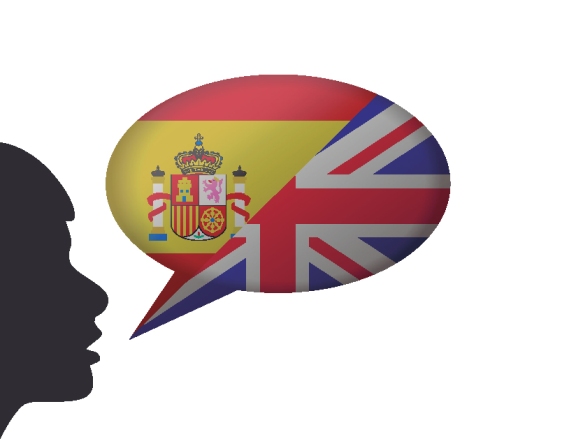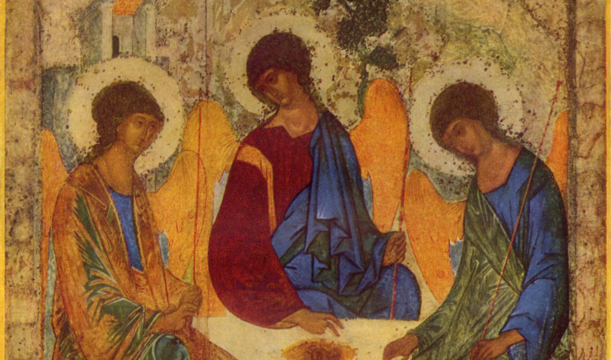
This post marks the first of a new occasional series, “Last Week in Virtue.”
“But what is scandal? Scandal is saying one thing and doing another; it is a double life, a double life. A totally double life: ‘I am very Catholic, I always go to Mass, I belong to this association and that one; but my life is not Christian, I don’t pay my workers a just wage, I exploit people, I am dirty in my business, I launder money…’ A double life. And so many Christians are like this, and these people scandalize others. How many times have we heard – all of us, around the neighbourhood and elsewhere – ‘but to be a Catholic like that, it’s better to be an atheist.’ It is that, scandal. You destroy. You beat down. And this happens every day, it’s enough to see the news on TV, or to read the papers. In the papers there are so many scandals, and there is also the great publicity of the scandals. And with the scandals there is destruction.” –Pope Francis homily, February 23, 2017 (Link)
On February 23 Pope Francis gave a homily that received widespread media attention, not so much for its message—a fairly traditional one about the sin of hypocrisy—but because the media seized on the Pope’s assertion that even an atheist was better than an observant Catholic leading a “double,” or hypocritical, life. Daniel Burke’s headline, at CNN, promptly declared, “Pope suggests it’s better to be an atheist than a bad Christian.” Burke discussed the Pope’s idea of scandal, noting that scandal is a particularly sensitive word for the Catholic Church. But the headline to his article shows the Pope’s notion of scandal eclipsed here by what the news media saw as a shout out to virtuous atheists.
UPI concurred, “Pope: ‘Better to be an atheist’ than a Christian living a ‘double life.’” The Huffington Post followed: “Pope Francis Slams Hypocrite Christians, Suggests Atheists Are Better.”
Even some Catholic publications found the atheism angle too tempting to resist: Crux, an online newsletter, trumpeted “Pope says better an atheist than a Catholic living a double life.”
In emphasizing the atheism story, the media in many ways replicated the very sense of scandal that the Pope decried in his homily, with headlines repeating over and over that the Pope would rather have a world full of good atheists than vicious Catholics. Looking closely at the Pope’s words shows that his concern in this case is as much on the shame of the public spectacle of Catholic hypocrisy as it is on celebrating virtuous nonbelievers: “How many times have we heard—all of us, around the neighborhood and elsewhere—‘but to be a Catholic like that, it’s better to be an atheist.’”
The news clearly liked the second part of his sentence better than the first part, but the emphasis in his speech is not on the virtue of atheism, but the terrible destructiveness of the scandal of hypocrisy, and how this kind of publicity, this kind of circulation of these images of Christians as vile hypocrites, destroys trust and faith. “You destroy. You beat down.”
We all know whenever one of these stories about Christian hypocrisy circulates, he says, that everybody looks at it and says, Better to be an atheist than one of “those” hypocritical Christians. We all understand, he is saying, that hypocrisy is a terrible sin, and we all would agree that an atheist without hypocrisy is better than a so-called believer who claims to believe in Christian charity while acting in a way that harms and exploits vulnerable people. The stress here is on the harm caused by the hypocrite, and on the news stories that emphasize that these kinds of so-called Christians—powerful Catholics who pretend to have generosity while actually treating others with great cruelty– are everywhere.
In one sense, then, the Pope wants to remind the hypocrite to return to a virtuous life by pointing out that their salvation is anything but assured. He wants to confront the sinner squarely with the sin—the fault of scandal lies with the hypocrite, not the news. He expands on the dishonesty of hypocrisy to show that it also includes the destructiveness of bad example and public scandal. At the same time, he uses the example of the atheist to remind listeners that good actions matter more than identity. A virtuous life might make a good person—even an earnest atheist—more fit for salvation than a person who goes to church regularly but steals wages from their employees.
Why is this notion of the virtuous atheist so attractive?
The virtuous atheist here seems a lot like the old trope of the virtuous pagan, whose fate preoccupied medieval scholars concerned with the salvation of those outside the Church, especially the ancient Greek, Roman, and Jewish writers they admired. Traditionally virtuous pagans fell roughly into two categories: those who had been offered Christian salvation and turned it down, and those who never had the opportunity to convert because of factors like chronology or geography. [1] To medieval scholars, it seemed patently unfair that the eminent philosophers, poets, and Old Testament scholars and patriarchs they studied should be automatically damned. They dreamed up various solutions, such as Christ descending to hell to baptize good people who had somehow ended up there, Limbos that resembled Paradise where good pagans might be housed until the Last Judgment, and the idea, championed by Thomas Aquinas and others, that following a virtuous life might lead a good person—even an atheist—to faith and salvation.
It may be that some journalists mistakenly believed that the Pope was acknowledging that a good life and afterlife could be had completely and forever outside the Church, which he wasn’t. The virtuous pagan doesn’t get to remain outside the Church forever, but at some point is expected to be led by virtue to Catholic conversion. This belief was seen last week in Vatican news sources that stressed this aspect of the Pope’s homily, such as Vatican Radio’s “Pope: Don’t put off conversion, give up a double life.”
However, it is not a stretch to say the Pope remains more concerned with doing good in the world than he is with the particulars of Church affiliation. According to Catholic Online, Francis explained himself, “The Lord created us in His image and likeness, and we are the image of the Lord, and He does good and all of us have this commandment at heart, do good and do not do evil. All of us. ‘But, Father, this is not Catholic! He cannot do good.’ Yes, he can… “The Lord has redeemed all of us, all of us, with the Blood of Christ, all of us, not just Catholics. Everyone! ‘Father, the atheists?’ Even the atheists. Everyone!” We must meet one another doing good. ‘But I don’t believe, Father, I am an atheist!’ But do good: we will meet one another there.”
In this diverse and secular age, there is something particularly appealing about the idea that it is the virtuous life that matters most, that it reveals its own truth regardless of religious faith. The Pope’s example of the virtuous atheist as better than the sinful Catholic appealed to the media last week because it emphasized that cultivating virtue is more important than membership, association, or influence. Not all of us can be powerful, rich, or politically well-connected, but each of us can try to be good. The stamp of religious membership might indicate that a good person stands before you, but it also might be true that the person who sets themselves up as a Christian paragon is a liar. By suggesting that virtuous action matters more than religious affiliation, wealth, or political power, the Pope appealed to a public weary of moral posturing and hungry for more discussion of how we all might cultivate genuine character, real compassion, and true moral direction by striving to be good in the world.
[1] Cindy L. Vitto, The Virtuous Pagan In Middle English Literature, Transactions of the American Philosophical Society, Vol. 79, No. 5 (1989), pp. 1-100; Stable URL: http://www.jstor.org/stable/1006545
Jaime Hovey is Associate Program Director for Virtue, Happiness, & the Meaning of Life.


 Aquinas and Newman on Conscience
Aquinas and Newman on Conscience

